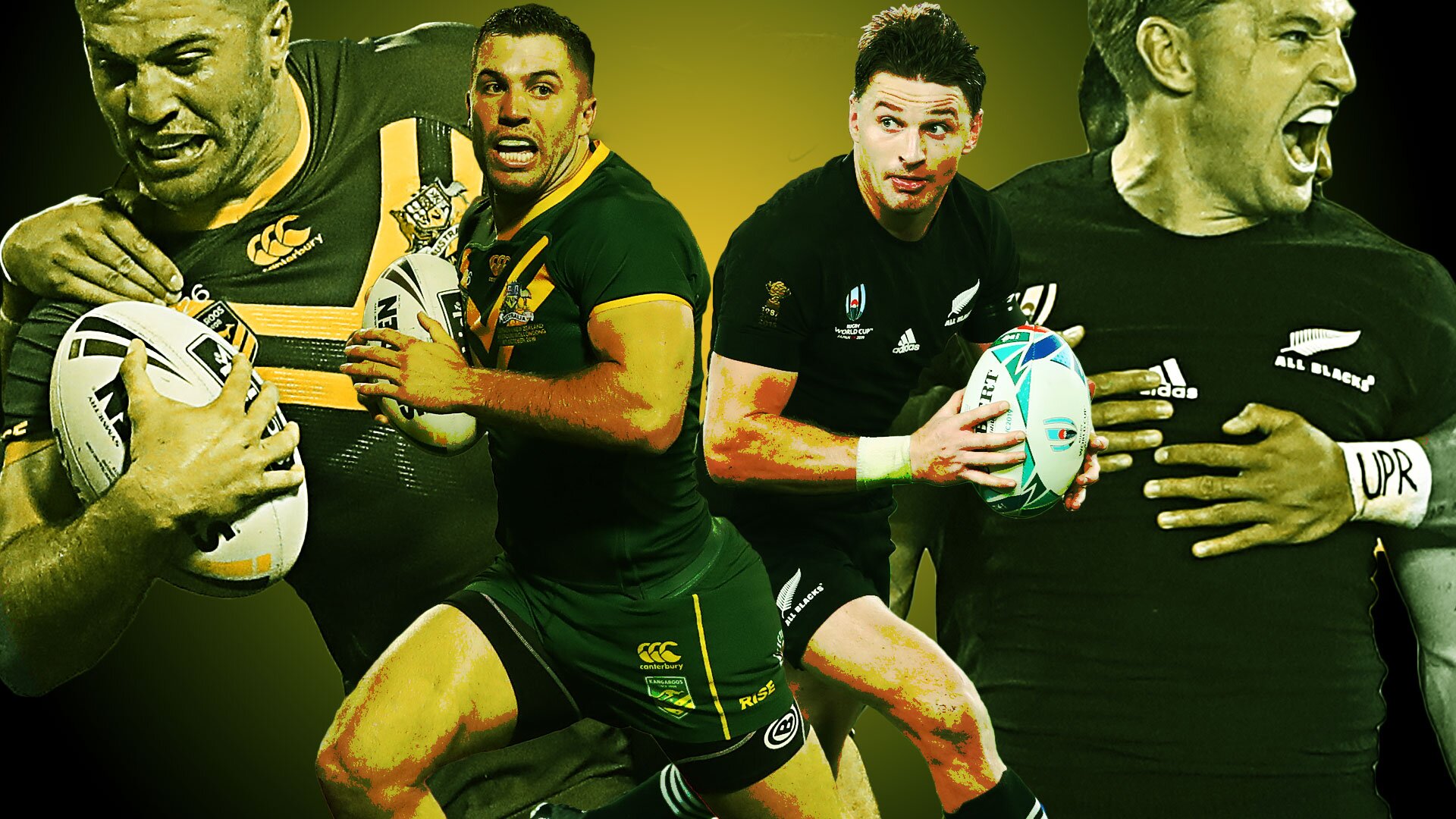Time to crack the emergency glass on the All Blacks-Kangaroos hybrid test once sport returns

With both Southern Hemisphere rugby codes in a tailspin engulfed in a global crisis, there is one untested solution that would provide a significant payday once action is able to resume.
The idea of an All Blacks/Kangaroos cross-code hybrid test has been floated in the past, but has never got off the ground. Some estimates in 2017 suggested the Test would fetch $50 million.
With both calendars jam-packed, it was a stretch to get both parties to work together to get it scheduled.
However, as Warren Gatland recently suggested, now is a chance to re-look at things. Everything that was off the table before could now potentially be back on it.
At the beginning of the sport, rugby league split off as a faction from rugby union over a financial dispute.
Now with both codes in Australasia needing cash, could money be the thing that brings them back together?
Controversy sells. Hostility sells. Emotion sells. There are few backstories filled with more hostility and division as the two rugby codes going back over 100 years.
The players from the rugby clubs in the North of England wanted to be paid, and that was against the RFU rules. The clubs rebelled and created an all-new inclusive code in rugby league.
Rugby league was made for every man and quickly spread across the globe in defiance of rugby union administrators, who predicted with regularity it would die.
Union players who defected to the code were banned for life from returning.
The two codes have gone in separate directions for more than 100 years, ignoring each other, divided as ever. But union eventually followed the path that created league in the first place, turning professional and becoming a commercial venture.
There exists a subset of fans that cross over, but that is the minority.
This is exactly why it would provide the theatre to draw in fans from both sides, with divided loyalties already set. Bringing two sets of mutually exclusive fans together. A boxing promoter couldn’t dream of a better situation to hype up.
99% of the players are unlikely to have to ever play alongside their opponents, allowing them to be free to express themselves without retribution, with administrators on either side happy to lob grenades on the other code.
Part of the growing malaise in professional rugby is its sterilized nature with few prepared to sell interest in the game with unmeasured honesty or bold arrogance.
Unfortunately, that vanilla approach doesn’t create interest. Perhaps only Eddie Jones knows this in the modern game.
This kind of clash would allow for a return to unbridled tribalism, backed by a larger story than either code.
Even pre-crisis, both isolated codes were, and are, under attack from youth indifference, globalization of far more powerful US sports, and the rise of e-sports and gaming.
Rugby league and rugby union aren’t competing solely with each other, rather the wider entertainment market, whether they realise that or not.
They should be finding ways to unite and collaborate to strengthen each other as the existential threats grow.
Leveraging each other through a hybrid test would work to grow each other’s audience and provide a cash injection. League fans may appreciate the power of Ardie Savea and the skills of Beauden Barrett, leading them to watch more union, and vice versa.
The All Blacks struggle to find consistent Trans-Tasman competition from the Wallabies after 15 years of Bledisloe domination.
The rivalry only exists in memory and historic relevance as the contest has become the most lopsided of any in World Rugby.
For Australian rugby league fans, the domestic state fixture State of Origin is widely held as the pinnacle of their game, illustrating how little regard international rugby league holds.
Pitting the All Blacks versus the Kangaroos would put two of the best rugby sides on this side of the world against each other.
The worst-case scenario is a one-off payday that flops but puts cash in the bank to help recoup the losses from this season.
The best-case scenario is uncovering an annual series that spins top dollar for years and becomes the premier event of Australasian sport.
Is that not worth a try?
























































